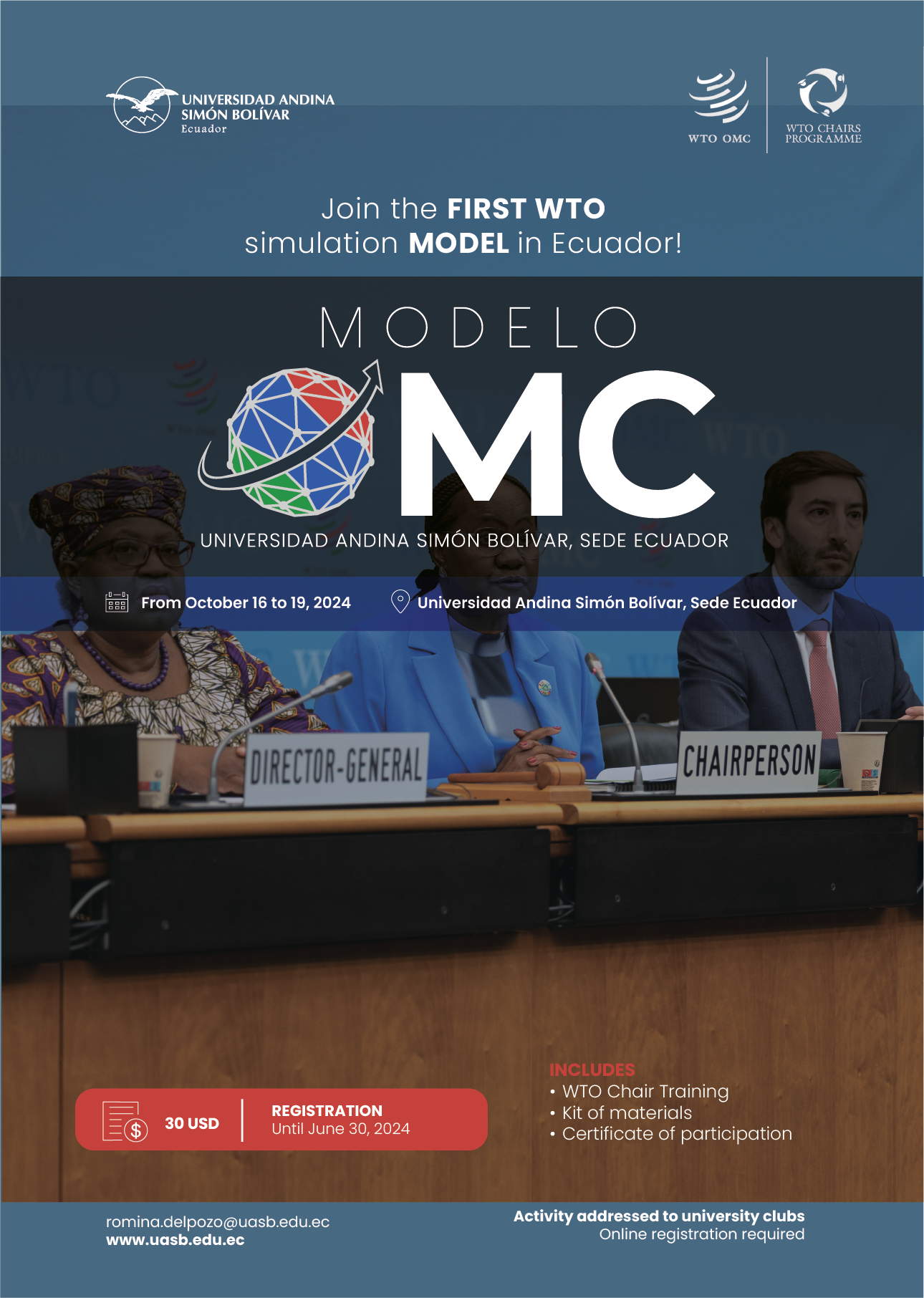WTO Model of Ecuador trainnig sessions
The first Ecuador WTO Model kicks off with training sessions delivered by 7 distinguished speakers:
The first Ecuador WTO Model kicks off with training sessions delivered by 7 distinguished speakers:

Sign up for the First WTO Simulation Model in Ecuador!
This is an initiative of the WTO Ecuador Chair of the Universidad Andina Simón Bolívar Sede Ecuador in collaboration with the WTO Chairs Programme, which will take place from October 16-19, 2024 at the campus of the Universidad Andina Sede Ecuador in Quito, Ecuador.
The registration fee is USD $30.00 which covers:
The Model Kit
Refreshments during the 4 days of the event
Training during the months prior to the event
Certificates
Health pandemics affect women and men differently, and they can make the existing gender inequalities much worse. COVID-19 is one such pandemic, which can have substantial gender implications both during and in the post-pandemic world. Its economic and social consequences could deepen the existing gender inequalities and roll back the limited gains made in respect of women empowerment in the past few decades. The chapter in particular outlines five main reasons that explain why this health pandemic has led to a vaccination gender gap in India.
This paper assesses debt sustainability in Tunisia using the Debt Sustainability Analysis (DSA). We construct three hypothetical scenarios (A, B and C) over the period 2023-2027. The first two scenarios are called Business as usual approaches. In Scenario A, we assume that Tunisia will continue the same path as in the past three years, without an IMF agreement. In scenario B, Tunisia reaches an agreement with the IMF. However, the lack of considerable progress on the reform agenda causes the ending of the IMF agreement. The last one (Scenario C) is a proactive reform scenario.
The study presented was on on realistic scenarios for Tunisia's economic and social development by 2040. Prepared by the Institute for Security Studies (ISS) and the WTO Chairs Programs of the University of the Northwest in South Africa and the University of Tunis, it was debated in a webinar on Thursday, December 10, at 2:00 pm Tunis time.
Chair: Prof Jelel Ezzine, UNESCO Chair on Science, Technology, and Innovation Policy, ENIT, Tunisia
Speakers:
Welcome remarks by Amb Narjes Dridi, Ambassador of Tunisia to South Africa
Stellah Kwasi, ISS Pretoria